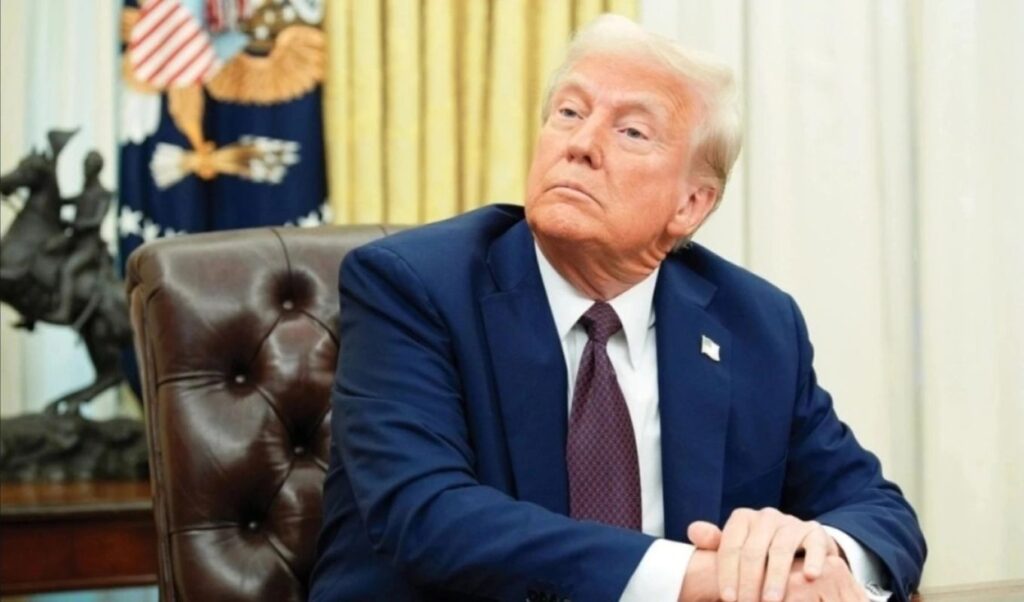With the goal of consolidating power in his hands while simultaneously reforming how the US government operates, Donald Trump showed how he’s starting his presidency, something he has largely achieved, according to CNN, due to a frightened Congress, hesitant institutions, and lukewarm judicial power.
However, there are increasing signs that his entire agenda could be undermined and his party could face enormous political consequences due to his arrogance on the most important issue for Americans: the economy.
Yesterday’s announcements about the US job market confirm some of the worst fears.
In detail:
- Preliminary data shows only 22,000 jobs were added in August, a very low number for an economy that needs about 100,000 jobs per month to keep pace with population growth.
- The American economy has created only 107,000 jobs in the last four months combined. Except for recession periods, these are the worst numbers in decades.
- June data was revised downward (13,000 jobs lost), marking the first negative month since December 2020.
- Despite Trump’s promises that his tariffs would revitalize US manufacturing, the construction sector has lost 78,000 jobs this year.
The Trump administration has made efforts to neutralize negative headlines about this data, claiming – without proof – that the numbers are “manipulated” to make the situation look worse. After July’s poor report, Trump fired the head of the Bureau of Labor Statistics and now plans to replace her with a controversial supporter.
White House chief economic advisor Kevin Hasset told CNBC: “That jobs number was certainly a little disappointing at this time” while predicting future positive revisions.
Labor Secretary Lori Chaves-DeRemer acknowledged on Fox Business that the new report was below expectations. Commerce Secretary Howard Lutnick asked for patience, calling on citizens to judge Trump on jobs over a 12-month period.
“Wait a year from now. Wow. They’re going to be amazing numbers,” he told CNBC.
CNN: Citizens already judging Trump’s economic policy negatively
However, that’s going too far, CNN comments, adding that citizens are already judging Trump’s economic policy negatively:
- A Quinnipiac University poll in late August showed Trump’s worst approval ratings on the economy in both his terms: 57% disapprove versus 39% who approve.
- Gallup showed 37% approval for the economy, while in his first term he averaged 52%. Only 29% of voters approved.
- In a Yahoo News-YouGov poll, Americans disapproved of Trump on “cost of living” by more than 2 to 1: 62% disapproved – 29% approved.
CNN notes that cracks are beginning to show even in Trump’s always-loyal base: the same poll showed 27% of Republicans disapproved of Trump on cost of living. And a Pew Research Center study showed 32% of Republican voters disagree with the tariff strategy.
All this shows that even Trump’s most loyal supporters’ patience is being tested. Will they really give him another year to fix it?
The danger for Trump is the possibility that the country’s economic image becomes so negative that it overshadows his entire term.
Trump’s power is largely based on tolerance. Citizens may not approve of his methods, but they don’t necessarily want to fight him. As long as issues don’t directly affect them, the reaction is limited.
Many of Trump’s most controversial initiatives are already quite unpopular – immigrants are being deported without legal procedures, the military has been deployed on American soil, Medicaid has been cut. However, none of these issues has caused a real revolt in Congress or anyone who could put a brake on his agenda.
The economy is perhaps the only element that could completely change the dynamics and bring to the forefront the obvious concerns about his term. If things continue to go wrong, Trump and his associates may continue to blame job data or the Fed for not lowering interest rates.
However, Americans will connect the economic reality they experience with something simple, easily understood, and directly linked to Trump: his destabilizing moves to unilaterally impose massive tariffs.
These are decisions he made without consulting Congress and despite the – albeit mild – reservations of Congressional Republicans, who for decades supported free trade.
Trump took responsibility for an already fragile situation and added a massive dose of uncertainty to it. He invested enormous political capital in this choice. And now it appears to be a bad bet.




